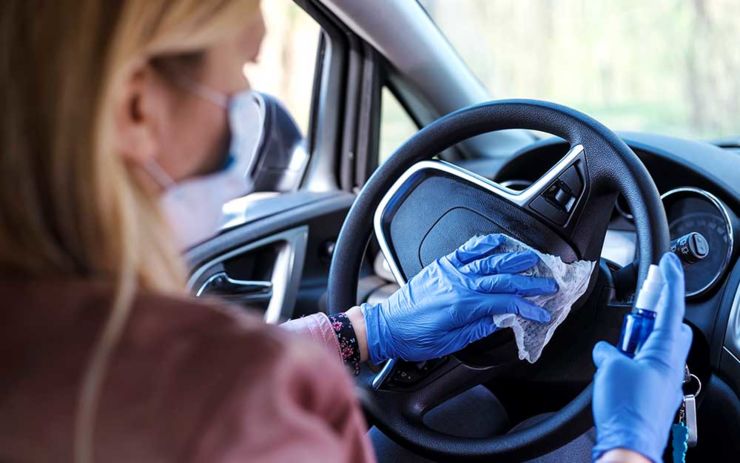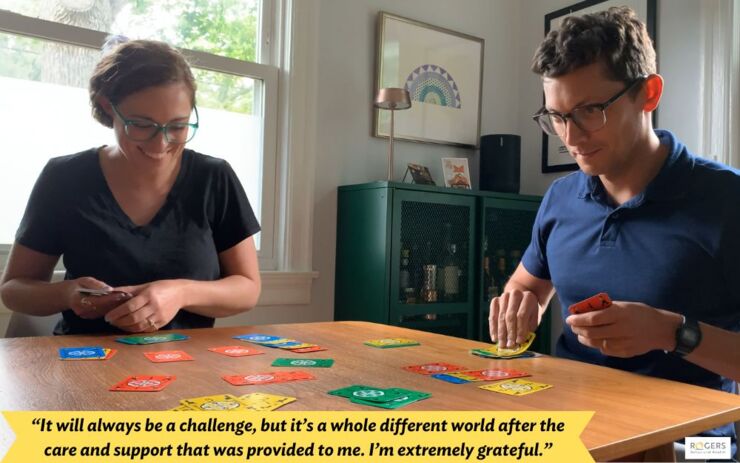Those with contamination OCD face extra challenges during pandemic
Posted on 07/14/20 02:38:pm
Share this article:
Frequent hand washing. Physical distancing turning into self-isolation. Fear of contracting the virus. For patients with contamination obsessive-compulsive disorder (OCD), the COVID-19 health guidelines have been especially challenging.
"Fears that used to seem exaggerated are now being reviewed and discussed by the media, lawmakers, co-workers, friends, family, acquaintances—everyone is talking about COVID-19," explains Brenda Bailey, PhD, clinical supervisor of OCD and Anxiety in Oconomowoc. "Our behaviors have drastically changed to look more like contamination OCD rituals and compulsions. OCD thrives on these changes and will push the sufferer to do more and be even more cautious."
What is contamination OCD?
Individuals with contamination OCD have an excessive fear of contaminating themselves or others, though no two patients' concerns are exactly alike. These may range from anxiety over contracting or spreading a disease to being contaminated by an essence such as the aging process. Dr. Bailey says that patients experiencing this type of OCD during COVID-19 tend to take the CDC's guidelines a step further.
"The CDC recommends wearing a mask when you cannot maintain a distance of six-feet from others, but those with contamination OCD may wear a mask when stepping only a foot outside their home, when in their own car by themselves, or may even choose to not leave their home at all," says Dr. Bailey. "While there is a threat of illness, behaviors that go above and beyond recommendations serve to further catastrophize the threat of illness and promote more fears and compulsions."
How to challenge contamination fears amid COVID-19
- Stay informed but set limits for news and social media consumption. While people may try to research their fears to ease their anxiety, that often results in heightened anxiety. Try practicing mindfulness in place of additional time online.
- Follow CDC guidelines, not OCD demands. Do what is recommended and challenge yourself to make decisions based on those guidelines, not your anxiety.
- Maintain social connections and a routine. Because contamination fears will encourage you to restrict your life and isolate beyond what's necessary, it's important to reach out to friends or try a new activity that allows for social distancing, such as tennis, golf, kayaking, or paddle boarding.
- As restrictions are relaxed, challenge yourself to enjoy previously off-limits activities. OCD will tell you it is still too dangerous, but you can try to find ways to enjoy yourself while still following CDC recommendations. Dr. Bailey suggests getting a lunch to go and enjoying it outdoors or visiting a local park for a hike.
Help is available at Rogers
Just as the rest of the world has changed due to COVID-19, the approach to treating contamination OCD at Rogers has been altered to follow CDC guidelines. Dr. Bailey says that because the only guarantee to not get COVID-19 is to completely disengage from society, treatment now focuses on helping people learn to function in a world experiencing a pandemic. Brad Riemann, PhD, chief clinical officer, also discussed this topic in a recent New York Times article.
If you or someone you know are experiencing symptoms that interfere with daily functioning or activities that are important to you, it may be time to seek help. Rogers provides OCD and anxiety treatment for children, adolescents, and adults throughout the country. Call 800-767-4411 or request a free, confidential screening online.



